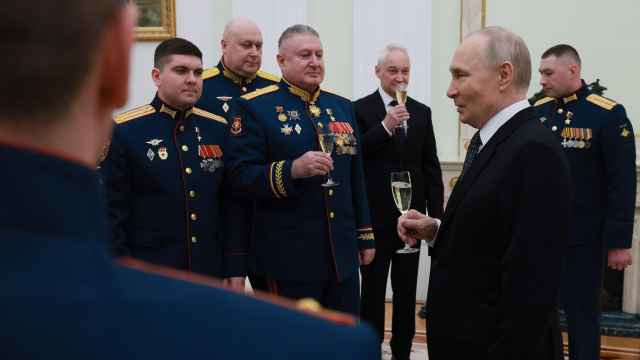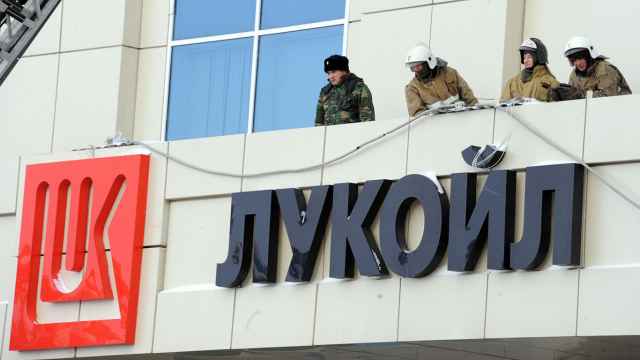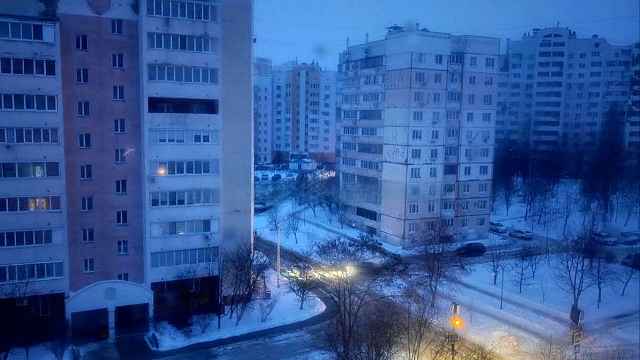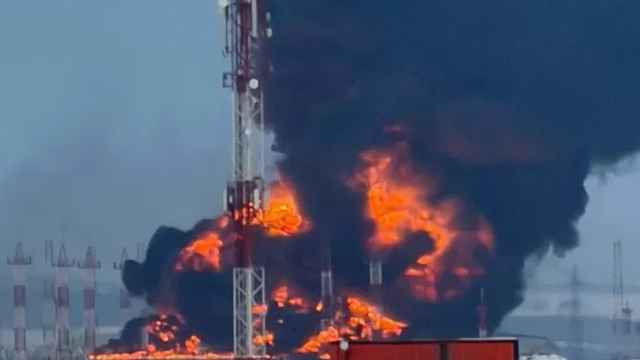President Dmitry Medvedev appointed a hawkish anti-Western diplomat to oversee Russia's defense sector, a rusting, inefficient industry beset by corruption scandals and failures to fulfill military contracts.
Dmitry Rogozin, currently the country's NATO ambassador, was named deputy prime minister on Friday, as part of a government reshuffle ahead of Prime Minister Vladimir Putin's expected return to the Kremlin next year.
Rogozin replaces Sergei Ivanov, a longtime Putin ally who took the post of Kremlin chief of staff this week.
"With your appointment, our defense industry will get an efficient manager, which is important because this sector has its well-known advantages, but also some major flaws," Medvedev told Rogozin at his residence in Gorki.
Rogozin is known for his tough anti-Western rhetoric throughout his political career as a parliamentary deputy and NATO envoy.
He responded by promising to govern the sector with an "iron fist" to eradicate corruption.
"Our motherland has allocated a lot of cash to our defense sector," he said. "I promise that every ruble, every kopek will reach its destination."
Russia, which is the world's second-biggest arms exporter, has pledged to spend 20 trillion rubles ($638.07 billion) in 10 years to modernize its army, which still largely relies on Soviet-era technology as a result of a systemic lack of financing.
But the country's defense sector has failed to fulfill obligations on state defense contracts, several industry critics said earlier this year. In July, Medvedev ordered Defense Minister Anatoly Serdyukov to carry out a probe into alleged disruption of a 2011 procurement plan.
Plans to rebuild the army have also been hampered by rampant corruption with a fifth of its annual defense budget stolen, the country's chief military prosecutor said this year.
The defense sector has come under fire from senior commanders for failing to produce weapons that meet modern combat standards, prompting Medvedev to threaten that the armed forces would buy foreign military equipment if its domestic industry is unable to satisfy its needs.
Russia signed a 1.2 billion euro ($1.57 billion) deal to acquire two French-made Mistral helicopter carriers earlier this year, which was the first major foreign arms purchase since the fall of the Soviet Union.
A Message from The Moscow Times:
Dear readers,
We are facing unprecedented challenges. Russia's Prosecutor General's Office has designated The Moscow Times as an "undesirable" organization, criminalizing our work and putting our staff at risk of prosecution. This follows our earlier unjust labeling as a "foreign agent."
These actions are direct attempts to silence independent journalism in Russia. The authorities claim our work "discredits the decisions of the Russian leadership." We see things differently: we strive to provide accurate, unbiased reporting on Russia.
We, the journalists of The Moscow Times, refuse to be silenced. But to continue our work, we need your help.
Your support, no matter how small, makes a world of difference. If you can, please support us monthly starting from just $2. It's quick to set up, and every contribution makes a significant impact.
By supporting The Moscow Times, you're defending open, independent journalism in the face of repression. Thank you for standing with us.
Remind me later.





